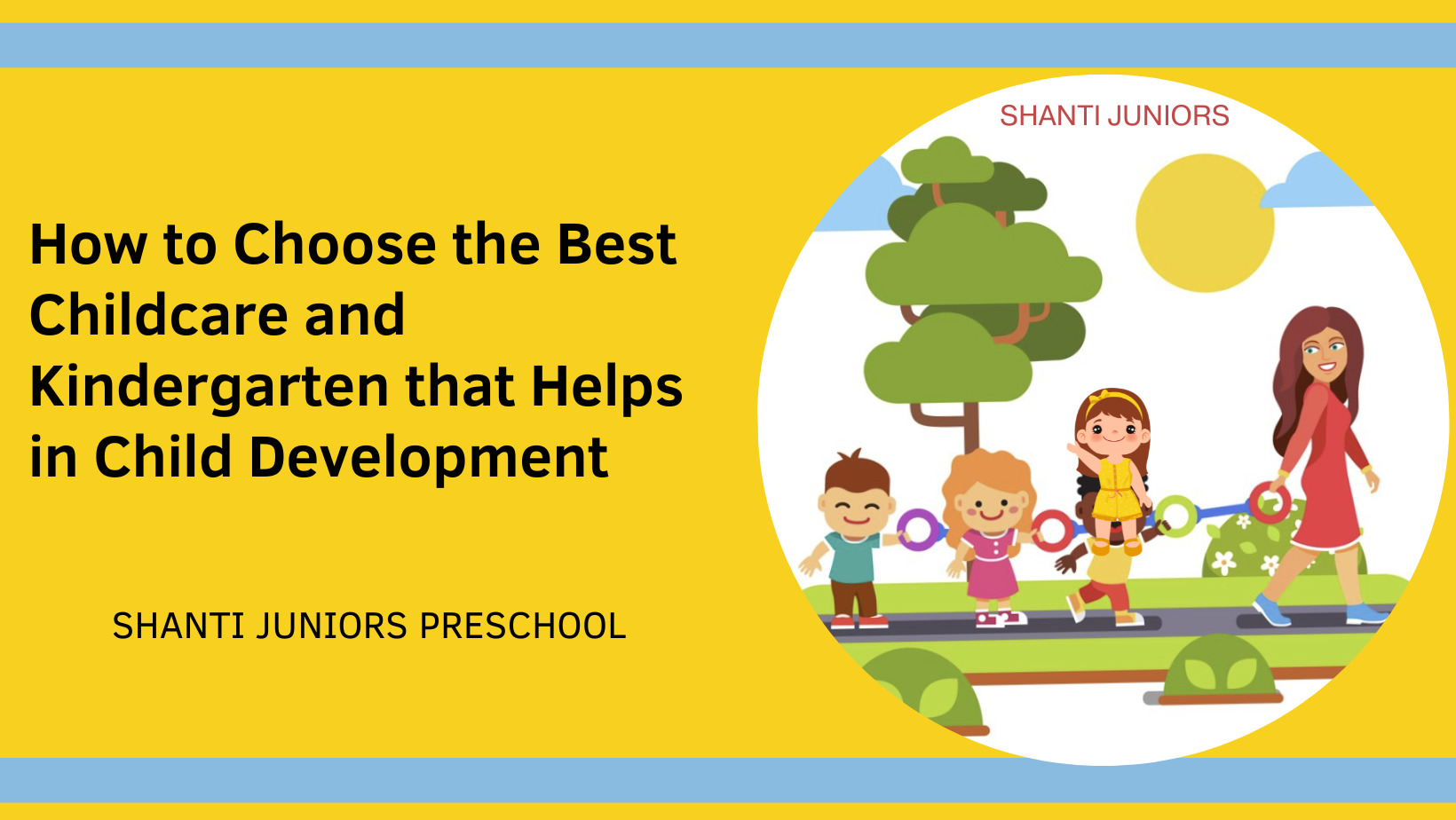Early childhood education sets the foundation for lifelong learning, behavior, and health. This article will provide you with comprehensive guidelines to ensure you select the best environment for your child's growth.
Choosing the right childcare and kindergarten for your child is a critical decision that can significantly influence their development. Early childhood education sets the foundation for lifelong learning, behavior, and health. This article will provide you with comprehensive guidelines to ensure you select the best environment for your child's growth.
Understanding Child Development Stages
Understanding the stages of child development is essential when choosing childcare and kindergarten. Each stage requires different approaches to nurturing and education.
Infant Stage (0-12 months)
At this stage, infants need a lot of attention, comfort, and basic care. Look for childcare centers that offer:
- Responsive caregiving: Caregivers should be attentive, respond promptly to the baby's needs, and engage in verbal and non-verbal communication.
- Safe and stimulating environment: The facility should be clean, safe, and equipped with age-appropriate toys that encourage exploration and sensory experiences.
- Consistent routines: Regular feeding, sleeping, and play schedules help in establishing a sense of security and routine for infants.
Toddler Stage (1-3 years)
Toddlers are highly active and curious, requiring an environment that supports their physical, social, and emotional development.
- Structured playtime: Look for centers that offer structured play activities which promote motor skills, such as climbing, running, and playing with building blocks.
- Social interaction: Programs should encourage interaction with peers to develop social skills like sharing, cooperation, and communication.
- Language development: Caregivers should engage toddlers in conversations, read stories, and sing songs to enhance their vocabulary and language skills.
Also Read: Advantages of Daycare for Children and Parents
Preschool Stage (3-5 years)
Preschoolers are developing their independence, cognitive skills, and social abilities.
- Educational curriculum: Choose a kindergarten with a well-rounded curriculum that includes literacy, numeracy, science, and arts. Montessori, Reggio Emilia, and Waldorf are popular educational philosophies to consider.
- Creative activities: Programs should include activities like painting, music, and dance to foster creativity and self-expression.
- Emotional support: Teachers should provide a nurturing environment that helps children develop confidence, empathy, and resilience.
Key Factors in Choosing Childcare and Kindergarten
When selecting a childcare center or kindergarten, consider the following key factors:
Location and Accessibility
Choose a facility that is conveniently located near your home or workplace. This ensures that you can easily drop off and pick up your child without significant disruptions to your daily routine.
Safety and Cleanliness
Safety is paramount in any childcare setting. Ensure that the center follows strict safety protocols, such as:
- Childproofing: Electrical outlets covered, sharp objects out of reach, and secure play areas.
- Hygiene practices: Regular cleaning schedules, sanitization of toys and surfaces, and proper handwashing practices.
- Emergency procedures: Staff should be trained in first aid and CPR, and the facility should have clear emergency evacuation plans.
Staff Qualifications and Ratios
Qualified and experienced staff are crucial for providing high-quality care and education.
- Credentials: Teachers and caregivers should have relevant qualifications in early childhood education and regular professional development.
- Staff-to-child ratio: Lower ratios ensure that each child receives adequate attention and supervision. Ideal ratios are typically 1:3 for infants, 1:5 for toddlers, and 1:8 for preschoolers.
Curriculum and Activities
The curriculum should be developmentally appropriate and tailored to the needs of the children in each age group.
- Balanced approach: Look for programs that balance academic learning with play-based activities.
- Cultural inclusivity: The curriculum should respect and incorporate diverse cultural backgrounds and practices.
- Parental involvement: Centers that encourage parental participation in activities and regular communication about their child's progress are beneficial.
Reputation and Reviews
Research the reputation of the childcare center or kindergarten. Speak with other parents, read online reviews, and visit the facility to get a sense of its environment and ethos.
How Childcare and Kindergarten Promote Development
Cognitive Development
Quality childcare and kindergartens stimulate cognitive development through structured activities and unstructured play.
- Problem-solving tasks: Puzzles, building blocks, and science experiments help develop critical thinking and problem-solving skills.
- Literacy activities: Storytime, alphabet games, and writing exercises enhance reading and writing skills.
Social and Emotional Development
Interacting with peers and teachers in a supportive environment fosters social and emotional growth.
- Collaborative projects: Group activities teach cooperation, teamwork, and conflict resolution.
- Emotional literacy: Programs that include emotional recognition and regulation help children understand and manage their feelings.
Physical Development
Physical activities are crucial for developing motor skills and overall health.
- Gross motor skills: Activities like running, jumping, and climbing strengthen large muscle groups.
- Fine motor skills: Arts and crafts, writing, and playing with small objects improve hand-eye coordination and dexterity.
Language Development
Rich language experiences are essential for developing communication skills.
- Verbal interaction: Regular conversations with caregivers and peers boost vocabulary and language comprehension.
- Storytelling: Reading and storytelling sessions enhance listening skills and imagination.
Conclusion
Choosing the best childcare and kindergarten for your child is a decision that requires careful consideration of various factors, including the developmental needs of your child, the qualifications of the staff, the curriculum, and the overall environment of the facility. By prioritizing these elements, you can ensure that your child receives the best possible start in life, fostering their development and preparing them for future educational success.

